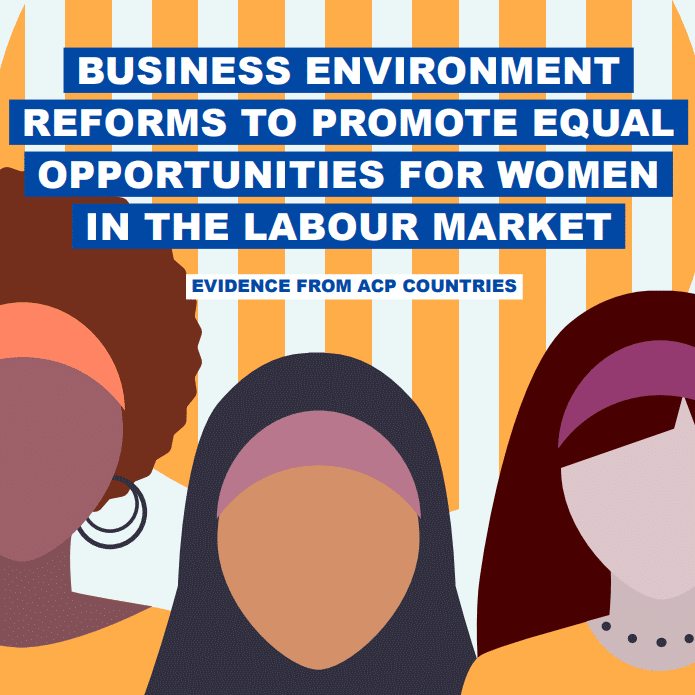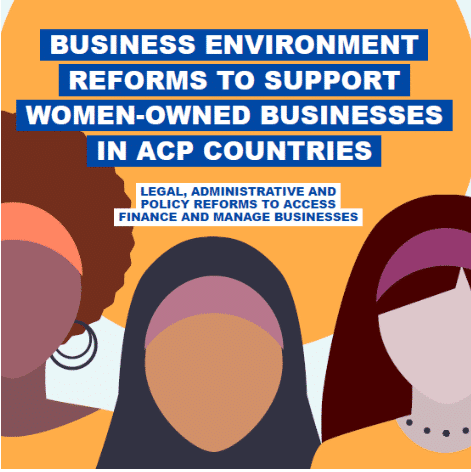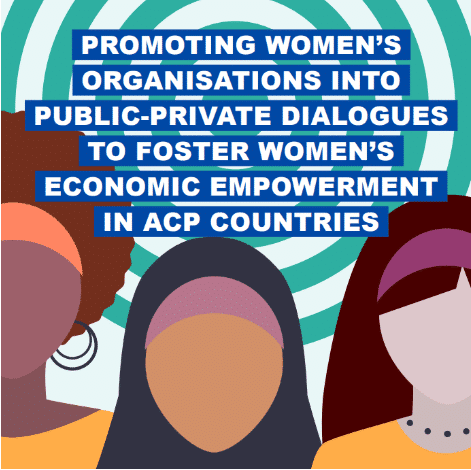Business Environment Reforms To Promote Equal Opportunities For Women In The Labour Market: Evidence From ACP Countries
Executive Summary
Women are more likely to be unemployed, be economically inactive, work in the informal sector, and to have temporary or more precarious employment than men. A mix of social norms, time scarcity – in particular due to unpaid care activities or the lack of quality and affordable care, discrimination, lack of mobility, and low levels of human capital accumulation, affect women’s likelihood of getting a high-quality paid job. COVID-19 has widened the historical inequalities present in the labour market. In addition to the increased time allocated to care activities due to the closing of schools and nurseries, jobs operated by women are more likely to be concentrated in sectors strongly affected by the pandemic, such as consumer-focused areas like hospitality, retail, education and care services. Closing the gender labour force and pay gaps are both moral and economic imperatives. It is estimated that the total Gross Domestic Product loss due to gender inequality in earnings was 14 per cent globally. McKinsey calculated that advancing gender equality could add $13 trillion to global GDP in 2030.
Key Findings:
- Having equal opportunities under the law is essential to promoting equal opportunities for women1 in the labour market. The lack of equal treatment under the law, negatively affects women’s access to the labour markets, earnings, and participation in highly productive activities.
- Policies and regulations still prohibit or create barriers for women from entering traditionally male-dominated industries, which often provide higher earnings and more job opportunities. BER could enhance women’s access to these specific job markets, thus reducing existing occupational segregation and gender stereotypes.
- Fiscal systems and policies can influence women’s employment decisions and can limit or promote women’s labor market participation. Public procurement opportunities for targeting increased participation of women, either with quotas in traditionally male-dominated sectors or for the inclusion of women-owned businesses, can be useful for promoting a more inclusive labour market.





